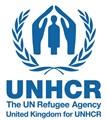Story
Indy's Story
Indy Avery is 13 years old and wants to do something really significant to help Ukraine and show his solidarity to those afflicted by the war, particularly child and animal refugees.
To raise money and keep awareness of the conflict current, he is walking 87 miles (139 km) across England along the ancient Ridgeway path. He's walking everyday, without taking any days off, regardless of the weather because "Ukrainians can't take time off the war."
He will be carrying the Ukrainian flag with him on every walk, and will photograph it along the way in the changing landscape.
To gain a very small sense of the struggles faced by Ukrainians displaced by the war, particularly in its horrendous early months, he will also be comparing the length of his journey with one taken from Kyiv. Fleeing west, beginning from Independence Square (Maidan Nezalezhnosti or Майдан Незалежності) 87 miles would only reach Zhytomyr, which has also been heavily bombed during the war.
Hiking since he was six, Indy has already walked many long distance paths, including the Cotswold Way, the Thames Path, the St Thomas Way, and Peddars Way. In 2021, he walked 68 miles along the Oxfordshire Way raising over 10.5k for the Anti-Bullying charity, Bullies Out.
The Ridgeway
The Ridgeway is an ancient trackway which has been in continuous use for over 5000 years. In 1972, the route was adapted and extended as a National Trail.
Recording Indy's progress here, we will be walking from the trailhead at Overton Hill, just outside Avebury, following the ridge of chalk hills in a north-easterly direction for 87 miles (139 Km) all the way to Ivinghoe Beacon in Buckinghamshire.
About UK for UNHCR (The United Nations Refugee Agency)
UNHCR, the United Nations Refugee Agency or High Commissioner for Refugees, is a global organisation dedicated to saving lives, protecting rights and building a better future for refugees, forcibly displaced communities and stateless people.
How UNHCR are helping in Ukraine
Over 3 million refugees from Ukraine have now crossed borders to seek safety in neighbouring countries, such as Poland, Hungary, Slovakia and Moldova. These numbers continue to rise.
UNHCR has declared Ukraine a Level 3 emergency – the highest level we have. In light of the rapidly evolving humanitarian crisis in Ukraine, UNHCR is working with authorities, UN agencies, displaced community groups and partners to provide desperately needed humanitarian assistance.
UNHCR staff are on the ground in Ukraine and are committed to stay and deliver assistance when and where access and security allow. Our teams have scaled up their presence and operations in central and western Ukraine, where conditions enable more humanitarian access, and where needs are also growing.
UNHCR are delivering aid and support to people forced to flee. Inside Ukraine, UNHCR has been delivering core relief items such as blankets, sleeping mats and emergency shelters, and more supplies are on their way. We also have specialist protection services set up to identify people in need of particular assistance, such as children travelling alone and people with disabilities.
In neighbouring countries, UNHCR has been sending emergency experts and stockpiles of essential supplies such as thermal blankets and sleeping mats, for distribution to refugees as well as convoys into Ukraine for distribution to those internally displaced. UNHCR is present at border areas and reception centres to help identify and provide dedicated care to the most vulnerable refugees and set up helplines and information materials.
UNHCR with partners is setting up the ‘Blue Dots’, safe spaces providing protection services for children, families and others with specific needs, in support of existing services and government efforts. We are also working closely with the authorities to support reception facilities for newly arriving refugees, as well as rolling out emergency cash assistance in some neighbouring countries.
We remain firmly committed to protect and help all affected populations in Ukraine and countries in the region. The response of donors from both the private and public sectors, as well as the welcome that refugees have received from neighbouring countries is outstanding - but even more support is needed to provide the growing number of people forced to flee with the assistance they need to recover from their trauma and start to rebuild their lives.
